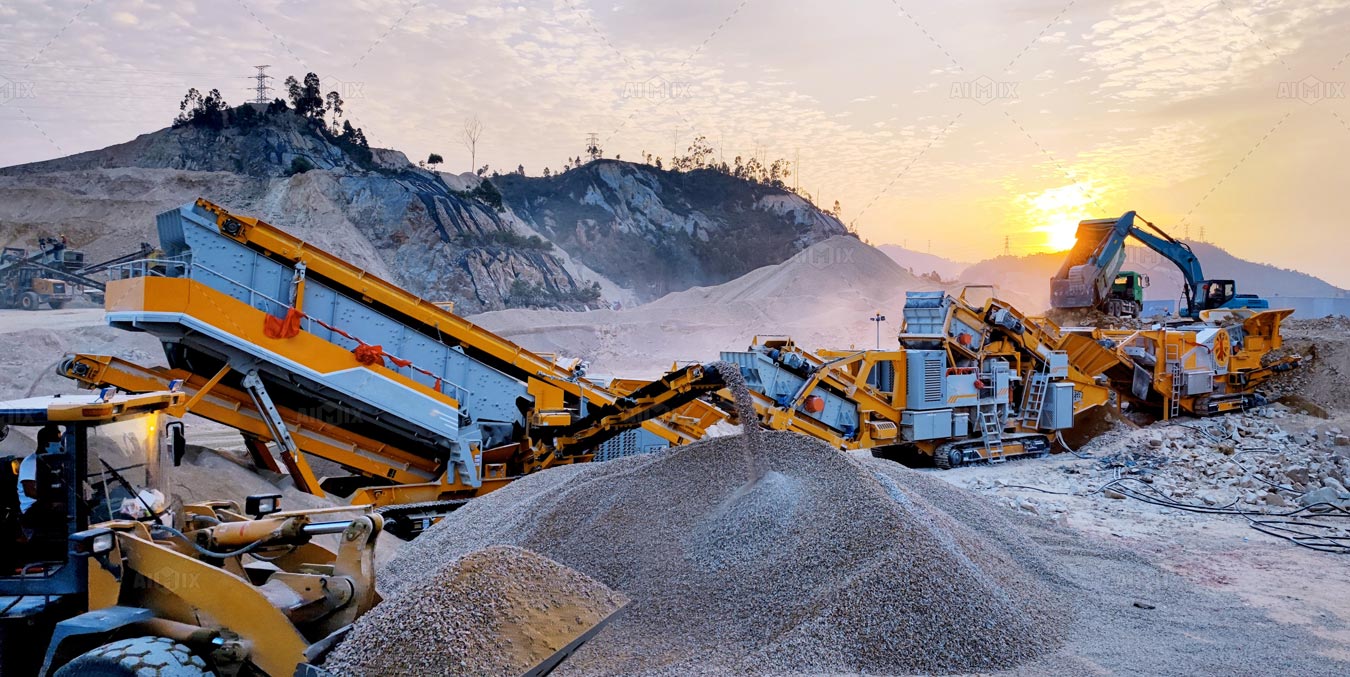The Latin American mining and construction industries are experiencing significant growth, driving demand for efficient and automated aggregate production. With rising infrastructure investments, urban expansion, and a need for high-quality construction materials, operators are increasingly turning to advanced technologies that optimize efficiency, reduce labor costs, and ensure consistent product quality. Modern solutions such as the aggregate crusher plant, stone crusher plant, and mobile stone crusher plant are becoming central to achieving these goals, allowing producers to meet increasing market demands while improving operational reliability.
Automation Trends in Aggregate Production
Automation in aggregate production has become a critical factor for competitiveness in Latin America. Operators are implementing intelligent control systems that manage every stage of the crushing and screening process. These systems enable real-time monitoring of feed rates, production output, equipment performance, and energy consumption, providing operators with actionable insights for improved efficiency.
The aggregate crusher plant(planta trituradora de agregados) is a key example of an automated production system. Modern plants are equipped with sensors and programmable logic controllers (PLCs) that automatically adjust operating parameters based on material characteristics. This ensures consistent particle size distribution and prevents equipment overload. For larger mining projects or high-volume construction sites, automation allows operators to maintain steady production while reducing human error and intervention.
Practical Applications Of Automated Crushing Systems
Enhancing Productivity With Stationary Plants
Stationary stone crusher plant installations are widely used in Latin American countries for large-scale aggregate production. Automation enables operators to manage multiple crushing lines simultaneously, ensuring smooth operation and maximum throughput. Remote monitoring and predictive maintenance tools help reduce downtime by detecting potential equipment issues before they become critical.
Automated stationary plants also allow for precise material blending and grading, which is essential for producing high-quality aggregates for concrete and asphalt applications. By integrating smart conveyor systems and advanced screening technology, operators can efficiently separate materials based on size and type, optimizing the production process for different construction projects.
Flexibility Through Mobile Crushing Solutions
In addition to stationary plants, the mobile stone crusher plant(planta trituradora movil) has become a popular solution for projects in remote or temporary locations. Mobile plants combine crushing, screening, and feeding systems into a single transportable unit, enabling rapid deployment and flexibility across multiple sites. Automation in mobile plants simplifies operation, allowing a small team to manage complex production processes with minimal intervention.
Mobile plants are particularly useful in Latin American mining regions with challenging terrain. Remote monitoring and control systems enable operators to adjust production parameters without being on-site, which reduces travel costs and enhances safety. Additionally, automation helps optimize fuel and energy consumption, a critical consideration in areas with limited power infrastructure.
Energy Efficiency And Environmental Considerations
Automated aggregate production technologies also play a significant role in improving energy efficiency and environmental performance. Modern aggregate crusher plant designs include energy-saving motors, variable frequency drives, and optimized crushing sequences that reduce power consumption. Dust suppression systems, noise control measures, and environmentally friendly designs help plants comply with increasingly stringent Latin American regulations.
By monitoring real-time energy usage and material flow, automated systems allow operators to make informed decisions that minimize waste and reduce environmental impact. These improvements are especially relevant for large-scale infrastructure projects where sustainability and regulatory compliance are critical to project success.
Integration With Digital And Smart Technologies
The future of aggregate production in Latin America is closely linked to digitalization and smart technologies. Advanced data analytics, cloud-based monitoring, and predictive maintenance software are increasingly integrated with stone crusher plant(planta trituradora de piedra) and mobile stone crusher plant operations. These tools provide insights into equipment performance, material quality, and operational efficiency, enabling operators to optimize production strategies and plan maintenance proactively.
Automation also supports the integration of multiple plants within a networked operation, allowing centralized control of distributed sites. This approach is particularly valuable for companies managing multiple quarries or construction sites, as it simplifies management and maximizes resource utilization.
Conclusion
Automation is transforming the aggregate production landscape in Latin America, offering increased efficiency, reliability, and sustainability. Technologies embedded in aggregate crusher plant, stone crusher plant, and mobile stone crusher plant installations provide operators with powerful tools to optimize production, reduce costs, and improve product quality. As the region continues to experience growth in mining and infrastructure projects, automated crushing and screening solutions will play an increasingly vital role in meeting market demand, enhancing competitiveness, and supporting sustainable operations. By investing in modern automated technologies, Latin American producers are positioning themselves for long-term success in a dynamic and evolving market.


Comments
No comments yet. Be the first to react!